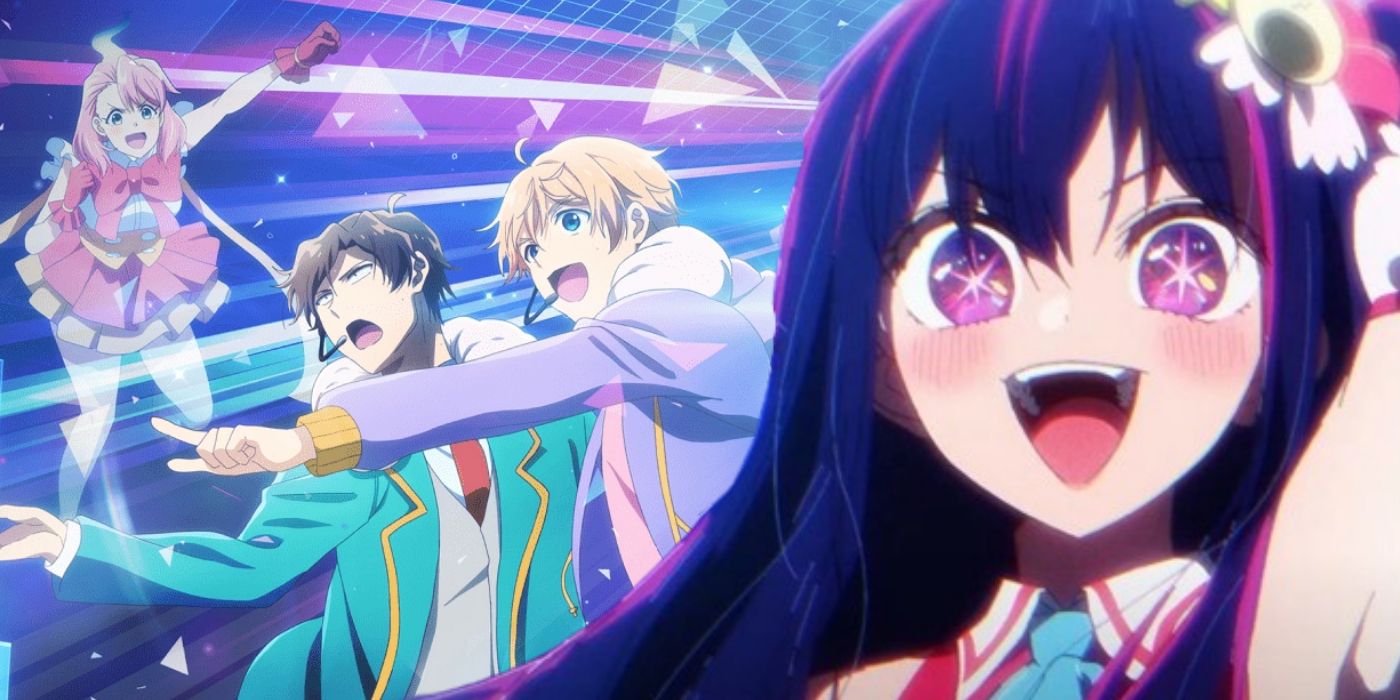
Summary
Phantom of the Idol deserves more recognition than Oshi no Ko and excels in its unique plot twists and gender dynamics. Phantom of the Idol tends to focus on the idol industry, unlike Oshi no Ko which was sidetracked by other storylines. The bittersweet and balanced nature of Phantom of the Idol effectively captures the passion and joy of its idols, making it stand out from Oshi no Ko.
HIDE is mostly known for hosting critically acclaimed series Oshi no Kobut very few fans know that the anime streaming platform licenses a newer title that is also about the idol industry called The ghost of the idol. And while Oshi no Ko is famous for a reason, Phantom of the Idol deserves more recognition than it currently has.
Oshi no Ko and Phantom of the Idol are similar because they both use supernatural phenomena such as reincarnation and soul possession to explore the complexities of the idol industry. That’s where all the similarities end, however, as both series differ greatly in tone and direction.
On the surface, Phantom of the Idol’s initial shock factor was the film’s decision to focus on its male idol. Phantom of the Idol sees the ghost of a female idol possessing a man who is not particularly interested in being an idol. The series explores the gender dynamic between the main characters by explaining the difficulty of being a woman trying to perform in a man’s body.
Phantom of the Idol explores idol culture in a different way than Oshi no Ko
While Oshi no Ko appears to be an important figure to the idol industry on the surface, the overall mechanics of the profession are lost as the series explores the broader entertainment industry. Ruby’s experience may closely follow the idol aspect of the series, but Oshi no Ko is often sidetracked by Aqua’s story as he navigates other roles in entertainment to find his mother’s killer. By comparison, Phantom of the Idol’s main focus is on being an idol – portrayed through the different experiences of Yuyu Niyodo and Asahi Mogami.
While Phantom of the Idol is much more optimistic, what it and Oshi no Ko share in common is a sense of loss that their respective characters try to reclaim. In the case of Oshi no Ko’s Ruby, and her previous identity as Serena, her dream of becoming an idol was far from a career, as opposed to Mogami’s Idol’s Ghost. As Ruby, she wants to become an idol like her mother Ai. As Serena, she wants to become an idol because Ai represents her hopes and aspirations. Although touching, Mogami’s sense of loss is more complete. She was actually fulfilling her dream of becoming an idol before it was taken away after her unexpected death. Even though she fulfills that dream through her unique relationship with living idol Niyodo, it’s still not the same.
Darkness and light
Phantom of the Idol takes a turn from Oshi no Ko for the better thanks to the connection between Niyodo and Mogami. Although there are those who prefer Oshi no Ko’s darker style, Phantom of the Idol still manages to balance both the positives and negatives. It captures the bittersweet nature of Mogami’s situation while still conveying the joy and passion that idols who truly love their craft share.
The key to Phantom of the Idol is how Niyodo and Mogami’s strange relationship develops, effectively demonstrating how the passion of one person can help ignite the same passion in others. It is the worship at the heart of idol culture that makes HIDIVE’s The ghost of the idol a much better representation of idol anime than Oshi no Ko.
Part 1 of The ghost of the idol is streaming on HIDIVE!
Watch On HIDIVE

